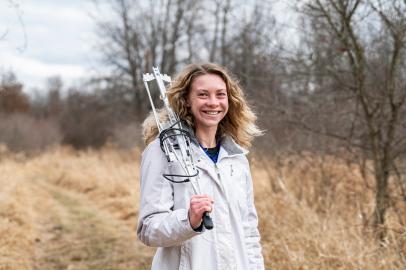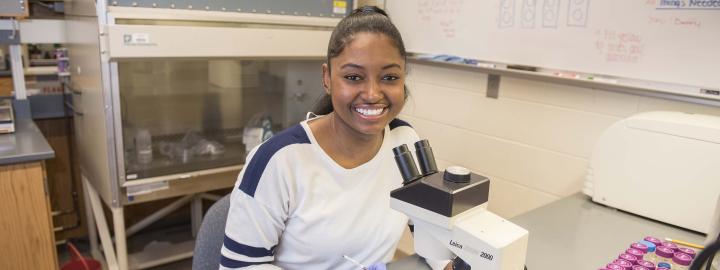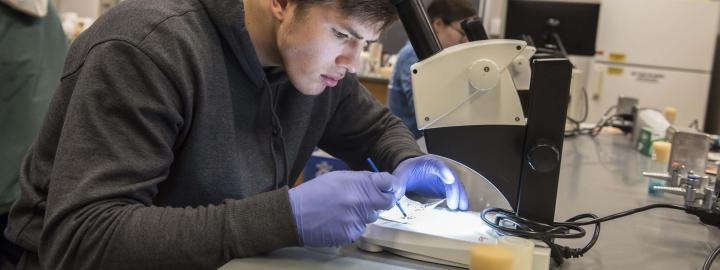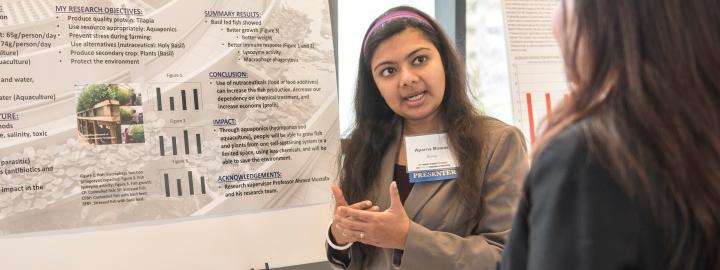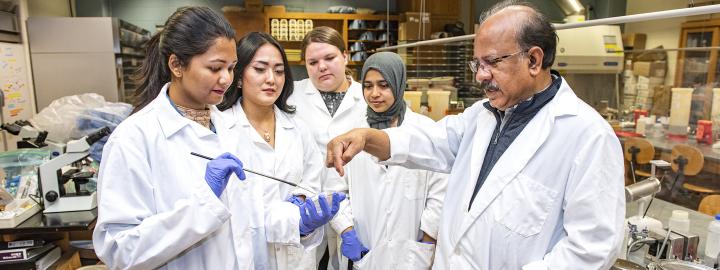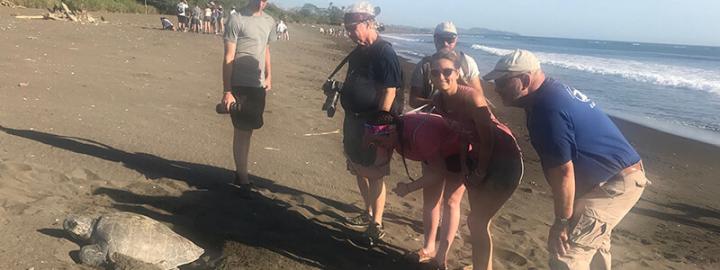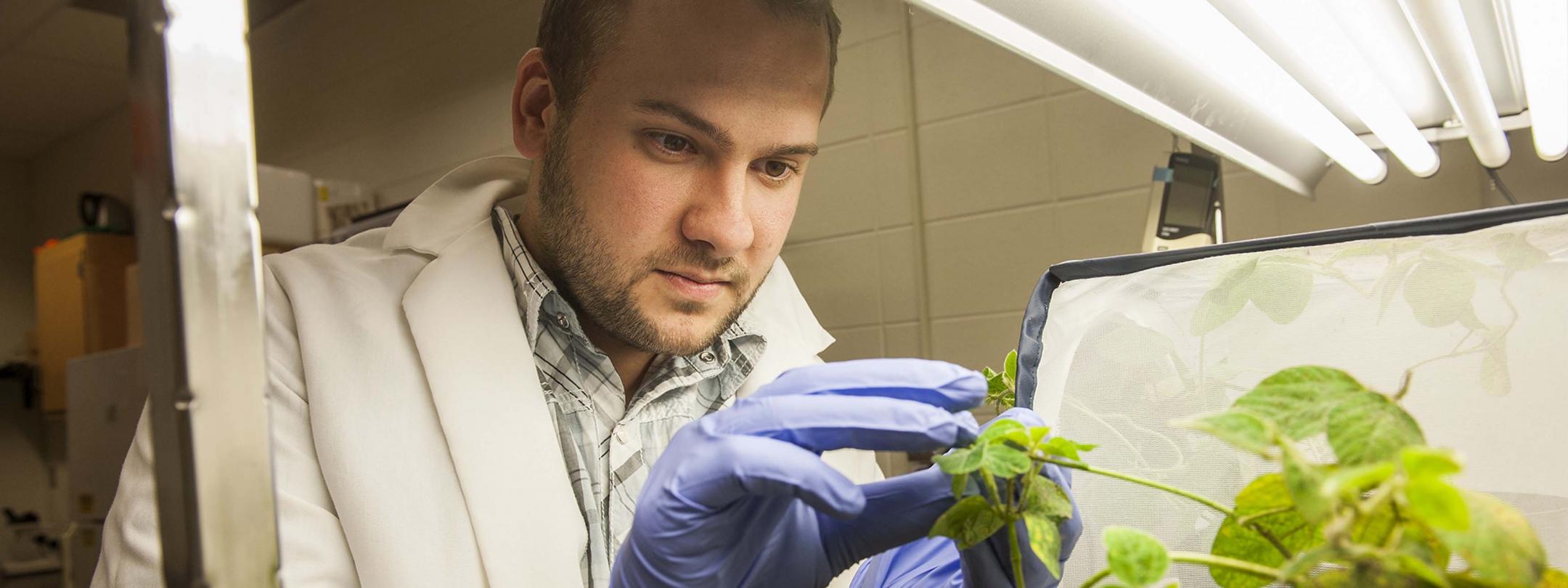
Biological Sciences Programs
It takes persistence to make differences that matter.
Whether you’re looking for a degree, minor, or certificate, the Department of Biological Sciences has the program you need to meet your goals.
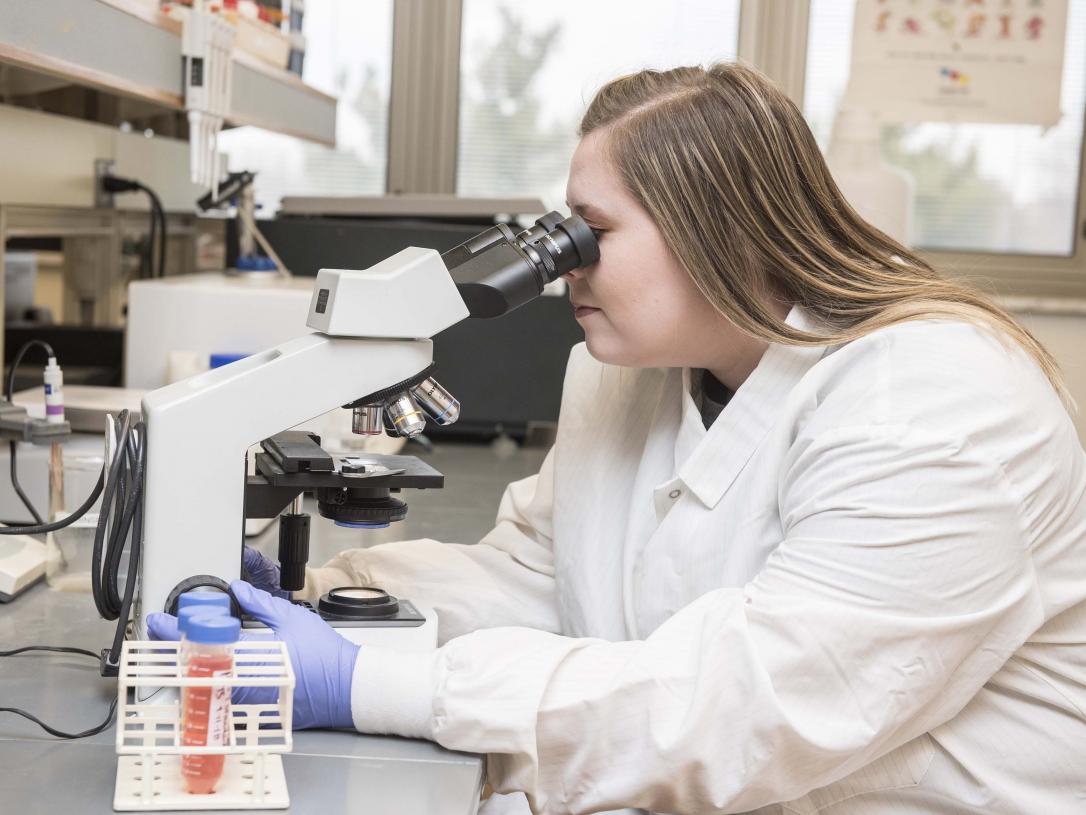
Biology (M.S.)
There’s never been a better time to be a biologist. Every day, new discoveries are made and new research is published, and it’s all making a difference in how we live. With a master’s degree in biology, you’ll get to contribute to this exciting research, share your knowledge, and apply it to the industry you love.

Program
Highlights
Program Highlights
- Top-notch research and problem-solving skills
- Experience with quantitative analysis
- Support from the Mastodon community
- A prestigious Purdue degree
career and salary data
How far will you go?
General labor market and salary data are provided by Lightcast via O*NET and may not represent the outcomes experienced by Purdue Fort Wayne graduates in these programs. Purdue Fort Wayne graduates in these programs may earn salaries substantially different or less than the amounts listed. Salary and employment outcomes vary by geographic area, previous work experience, education, and opportunities for employment that are outside Purdue Fort Wayne’s control. Purdue Fort Wayne does not guarantee employment placement, salary level, or career advancement.
Student Learning Outcomes
Upon completion of this degree, students will be able to demonstrate the following learning outcomes:
- A level of competency for understanding core principles of evolution, organismal diversity, ecology, biological structure, biological function, molecular biology, and genetics
- Locate and critically evaluate scientific information to help develop relevant questions and hypotheses, interpret the results of investigations, and synthesize and apply new and existing knowledge
- Design studies to test biological hypotheses using laboratory, field, or computational methods that meet professional ethical standards
- Effectively communicate the results of scientific research verbally and in writing
- Learn independently, analyze data, interpret results, synthesize information, and critically evaluate the significance of research results and new knowledge
- An awareness of the relevance of biological knowledge to human health and welfare in local, national, and international communities
- Biostatistician
- Clinical Lab Scientist
- Dentist
- Environmental Scientist or Specialist
- Forensic Pathologist
- Geneticist
- Immunologist
- Lab Manager
- Marine Biologist
- Microbiologist
- Physician
- Science Writer
- Toxicologist
- Veterinarian
- Wildlife Biologist

